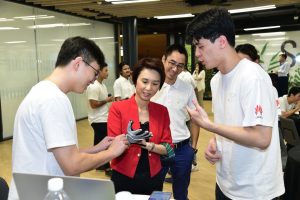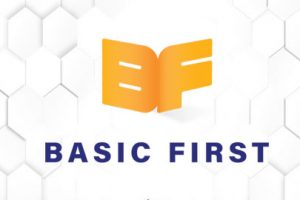In a brief interaction with CXO TV, Tarun Anand, Founder and Chairman, Universal Business School, highlights how technology is driving the student learning as well as bridging the gaps in the higher education in India. He also underlines the criticality of new-age technologies and their inclusion in curriculum to address the future professional demands
What are the gaps you see in the Indian education system, specifically in the higher education in terms of experiential learning, global exposure and industry readiness?
The traditional curriculum and focus is on pedagogy. We are dealing with adults and they are highly motivated and self-directed. Hence, pedagogy works in the K-12 segment and not in higher education. There are 7 reasons that it can’t work:
- Students are internally motivated
- Students have personal interests that they bring to the classroom which facilitates reflective learning on their behalf
- Need for hard skills and soft skills
- Students are relevance-oriented; they need knowledge on why they are learning and what they are learning?
- Students have a practical mind-set; it’s not about winning, it’s about skilling.
- All students and teachers are at an equal stage when discussing real life case studies. It’s more like ‘guide-on-your side.’
- A minimal global exposure: trips and study tours.
Best business management practices like Harvard Business Referencing are seldom followed in India. Bloom’s taxonomy is just given lip service. We have to make sure that our assessment follows the latest version of Bloom’s taxonomy. From an industry-academic divergence, what academia is doing is not relevant to the industry; their case studies should be focused on the learning outcome.
How do you think technology is playing its role to bridge the gaps in education?
In the lock down, zoom call was a life savior. We were able to manage student learning in a synchronized fashion. Technology helped us to reach our students and faculties all around the world.
In addition, our ERP system enabled us to build a platform with full-access to all case studies, research, lessons to students, attendance, report cards, important announcements, club activities, as well as chat-rooms for students. This allowed parents and teachers to track the academic progress during the lockdown.
Further, technology has played a great role in the lifelong learning space with platforms like edX and Coursera providing great opportunities to students and professionals to learn throughout their lives. It has changed the stereotypical thought of learning for 20 years and using that knowledge to work for the next 40 years. After the crisis, the learning mantra has changed. Now, you need to keep learning to synchronize with the world.
How Global Business School differentiates itself and delivers on the global standards of education?
As the world opens up post-covid, the global MBA will allow students to learn a global curriculum with all standard global assessments. The regular MBA looks at the conventional curriculum, which has been going on for ages. The global education can be put in three areas: Learn with global student cohort; Interaction with faculties from around the world and Global Alumni status card.
At UBS, we give an opportunity for our students to work and study for 24 months in the Northeastern Illnois University (where they can study and work in Chicago for 2 years) and San Francisco’s Linton University. The students also have an option to study and work in Europe with UBS partnered Swiss School of Management and similar options in France and Italy.
In a similar opportunity, students get to study in Europe for 1-2 months with Cardiff Metropolitan University or with University of Economics, Varna for 3 months. They also get multiple specializations which you don’t get in India such as AI, ML, business analytics, fashion marketing, investment banking, etc. A Global MBA or PGDM opens doors of opportunities from all around the world.
The Covid-19 pandemic has transformed the centuries-old chalk and talk teaching model to one driven by technology. What is the change technology and the pandemic brought to the higher education system in India?
We already had communication platforms like Zoom and Google Meet for teachers and students for educational purposes. In addition, we came out with a peer to peer platform for students to virtually meet their peers, sing songs, play games online and so on.
The best thing about technology is that it enabled us to get global business leaders and international CEOs to teach or speak at the programs. UBS also hosted online art competitions and case presentations on Harvard Business Review wherein they could present their research with complete access to international libraries and simulations. In the middle of the lockdown, UBS introduced an AI proctoring technology for a secure browser and cheating-free exams.
While we have accepted the hybrid education system, few things will continue to remain online. Universities would partner with platforms such as EdX and Coursera to co-create content in byte-sized fashion that can be consumed at any point of time and in an adaptive nature. On the other hand, classrooms will come alive with experiential learning. Case studies are past; experiential learning is here to stay. But the future is AI, virtual reality and mixed reality.
Digital transformation is here to stay and the education industry is preparing for it. In fact, universities are employing information officers, digital officers and the future is going to be AI-infused learning. We will have AI for mentor selections, faculty recruitment and exam purposes. Further, AI will be used to determine the academic score, predicting specializations, jobs and income levels; even 10 years later, retention strategy for faculties or recruitment strategies for faculties, student selection strategy and so forth.
Do you think online classes and e-learning are delivering the same quality of education and student success as delivered by the traditional system? How do you see the education system evolve over the next few years?
STEM infused MBA is never going out of the picture. With the new global wave of digital transformation, there’s equal soaring demand for professionals for STEM skills such as business analytics, coding and innovation. Experts say that the new age technology is going to impact each and every industry. For example, business analytics market alone is expected to surpass $200 billion.
The future of management education is going to be skewed towards technology. With digitization and automation gaining prominence, it is important to understand the newer professions and it will take a higher level of creative thinking.






















